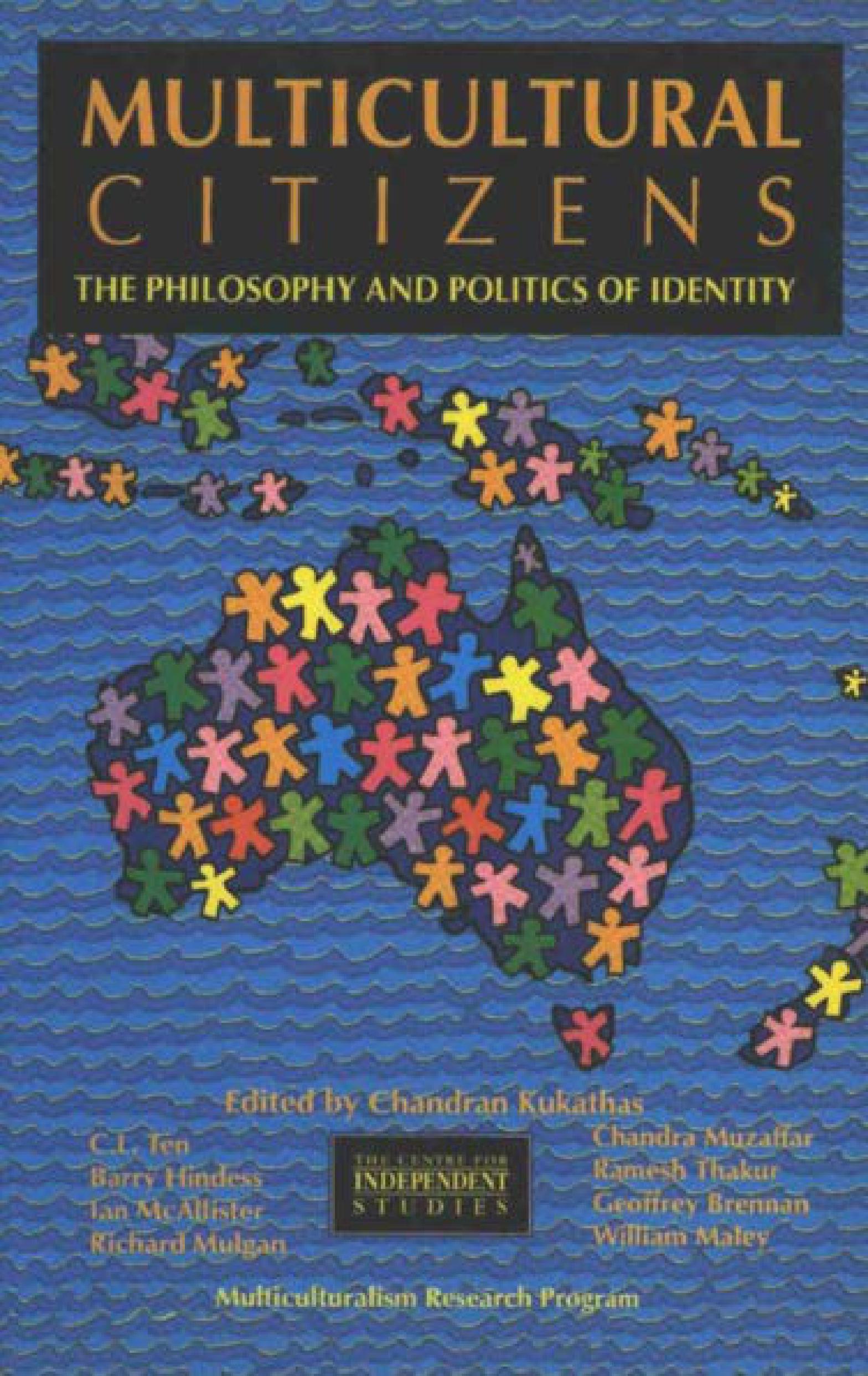
This volume of essays has its origin in a conference on multiculturalism sponsored by the Centre for Independent Studies and held at the Australian Defence Force Academy on 30 November 1991. The conference looked at three kinds of question. The first was a philosophical question about the moral foundations of ideas of multiculturalism. Here, paper-givers broached questions about the relations between multiculturalism and liberalism, about its implications for notions of citizenship, and its connection with ideas of national identity.
The second kind of question it examined concerned the practical dimension of multicultural politics. Here it was asked how multiculturalism has been received in different pans of the world and to what extent (and then, why) it has prospered. Finally, the
conference asked some practical questions about the implications of multiculturalism for the way in which we should address certain practical issues of public policy, such as the treatment of refugees, or the development of policy guidelines for international child-adoptions.
As one might expect from a conference concerned with so broad a theme, there were differences among the participants not only of approach but also of conclusion — though disagreement tended to be about the way in which multiculturalism should be understood or about specific matters of policy, rather than about whether multiculturalism was feasible or desirable. Multiculturalism. when taken to mean cultural diversity, is undoubtedly here to stay. Indeed, it is hard to find many societies in human history that have not been marked by significant cultural variety. Dispute about this matter is difficult to imagine. Multiculturalism as an official policy, however, is another matter, since this raises questions about whether a minimal cultural homogeneity should be fostered, and about what kinds of policies are best pursued if liberal-democratic values are to be upheld. It is on these latter issues that conference discussion tended to focus.
Most of the papers in this volume were presented for the first time at the CIS conference, though papers by Hindess and Kukathas (Multiculturalism and the Idea of an Australian Identity) had originally been read elsewhere. As is often the case with conference proceedings, it is difficult to find a concern or argument that is common to all papers. Yet if there is a single point of common emphasis in this volume, it is that ideas about multiculturalism arc important because they bear significantly upon other ideals or values with which they may not always be compatible. The bearing of multicultural ideals and practices upon these values — be they citizenship, or national identity, or toleration, or social cohesion — is complex, and often subtle.
Understanding how multiculturalism and other values relate to one another, and on occasion come into conflict, is important if we are to make judgments about questions of public policy and about matters which determine the shape of the polity generally.
In the end, what this volume offers is a series of perspectives on different questions of multiculturalism. Its value will perhaps lie less in what it has to prescribe than in the understanding it offers of the nature and limits of multiculturalism. In this respect, one hopes that it will provide a useful guide to sober reflection on issues that seem likely to dominate political discussion well into the foreseeable future.










